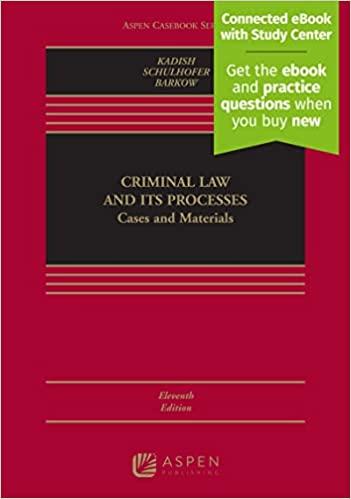Question
Oliver Reddy was living with his wife and four children in a cramped Philadelphia (Philly) apartment when he saw a television ad promising the family
- Oliver Reddy was living with his wife and four children in a cramped Philadelphia (Philly) apartment when he saw a television ad promising the family a way out. "Why rent when you can own your own home?" Pennsylvania builder Micky Stromboli asked. The company even offered to pay his rent for a year, while he saved for a down payment. So the Reddy family fled the city forthe Pocono Mountains, where they bought a three-bedroom Cape Cod home for $171,000. However, when they tried to refinance less than two years later, the home was valued at just $125,000. "I just about flipped," said Mr. Reddy. Later Mrs. Reddy remarked about her husband, "He went nuts." Stromboli, a 51-year-old native of West Philly, built a thriving homebuilding business in this market, running folksy television ads offering Philadelphians new homes in Pennsylvania. If they joined Stromboli's program, called "Why Rent," homeowners would find financing through another of his companies, Chapel Creek Mortgage, which brokered loans from J. P. Morgan Chase and the company's Chase Philadelphia Mortgage unit.
For years, the "Why Rent" program appealed to workers with modest salaries, such as Eberht Rios, a truck driver for UPS. Rios bought a home in the Poconos for $140,000. This year, when he tried to refinance, he was told the home was valued at only $100,000. One local appraiser, Dominick Stranieri, signed off on most of the "Why Rent" deals that state officials now say were overpriced, including the Rios and Reddy homes. Stromboli's firm picked Stranieri as his appraiser because of his quick work and low fee of $250, instead of the typical $300 to $400. In exchange for a steady stream of work, Mr. Stranieri accepted without question valuations from Stromboli's company.
Other common methods of creating revenues include investors and others buying distressed properties and then, using inflated appraisals, selling them for a big profit. In order to secure the efforts of a "dirty appraiser," those involved with the fraud would pay up to $1,500 under the table on top of the appraiser's standard fee of $400.
Another unique twist to the plot is that few of the people involved in making mortgage loans have a long-term interest in them. Traditionally, bankers made loans directly and held them, giving the lenders a strong incentive to find fair appraisals to protect their interest. Today, however, many appraisers are picked by independent mortgage brokers, who are paid per transaction and have little stake in the long-term health of the loans. Many lenders have also lost a long-term interest in their loans, because they sell them off to investors. Appraisers increasingly fear that if they don't go along with higher valuations sought by brokers, their business will dry up.
Do you think a county appraiser would do a lot better than a private practitioner? Joel Marcus, a Philadelphia-based attorney recently had his property valued at $2.2 million by a county appraiser, up from $2 million the previous year, which means a $7,200 jump in his property tax bill. Based on recent home sales in his neighborhood, Marcus believes his property is valued at between $1.7 and $1.8 million. Based on this information, Marcus has appealed his appraisal.
Although a good appraisal requires doing hours of legwork, visiting a property to check its condition, and coming up with at least three comparable sales, Stromboli says he isn't surprised that later appraisals, or even different appraisals made at the same time, could result in different values. "Appraisals are opinions," he says. "Value, like beauty, is in the eye of the beholder." Stranieri and Stromboli deny any wrongdoing and say they operated independently and that any home that declined in value did so because of a weak economy. "It's like buying a stock," Stromboli says in an interview. "The value goes up. The value goes down."
Questions
- How might an opportunity be created to commit appraisal fraud? Discuss whether you believe the appraiser acts alone, or is collusion routinely involved.
- How was the appraisal fraud detected in this case?
- Explainonepressure or perceived pressure that can motivate appraisers to make faulty valuations.
- Explainoneway in which appraisers might rationalize their fraudulent behavior.
- Why would a county (local government) perceive pressure to fraudulently inflate property values?
- Recommend and describeonecontrol that would help to prevent appraisal fraud. Discuss any costs or challenges to implementing your suggested control.
Step by Step Solution
There are 3 Steps involved in it
Step: 1

Get Instant Access to Expert-Tailored Solutions
See step-by-step solutions with expert insights and AI powered tools for academic success
Step: 2

Step: 3

Ace Your Homework with AI
Get the answers you need in no time with our AI-driven, step-by-step assistance
Get Started


